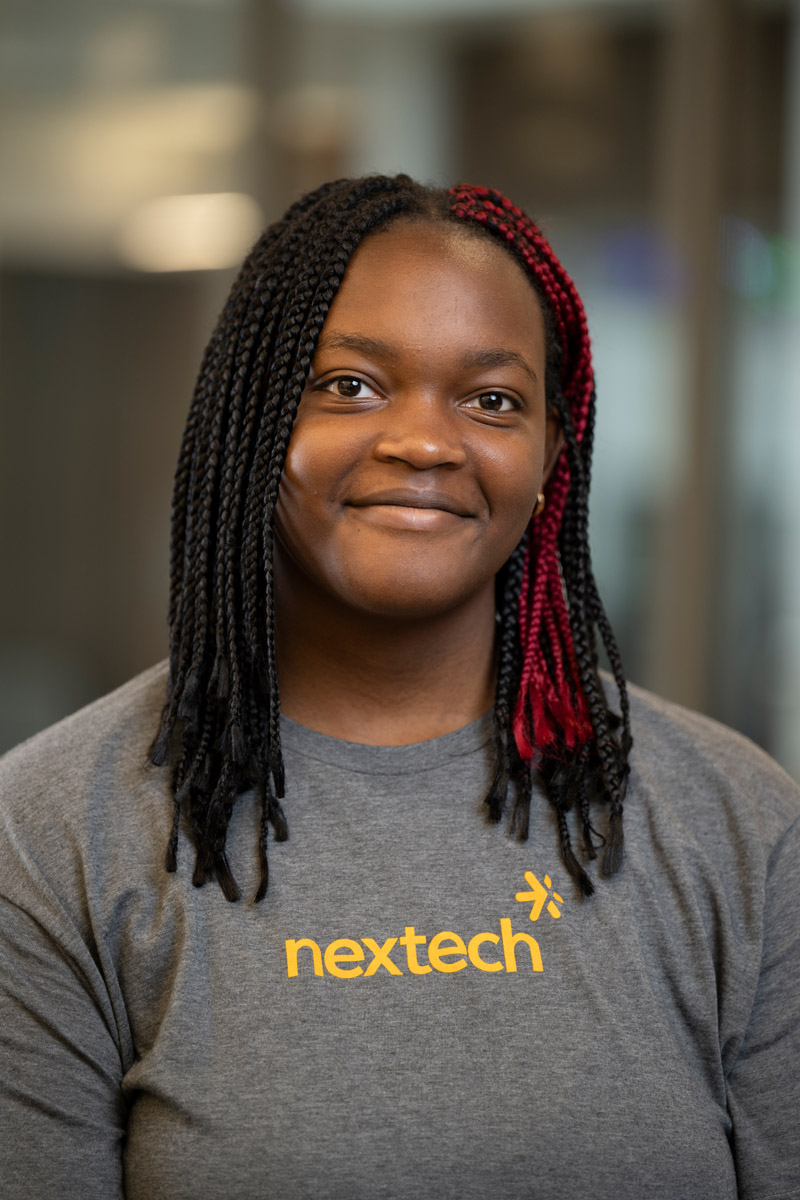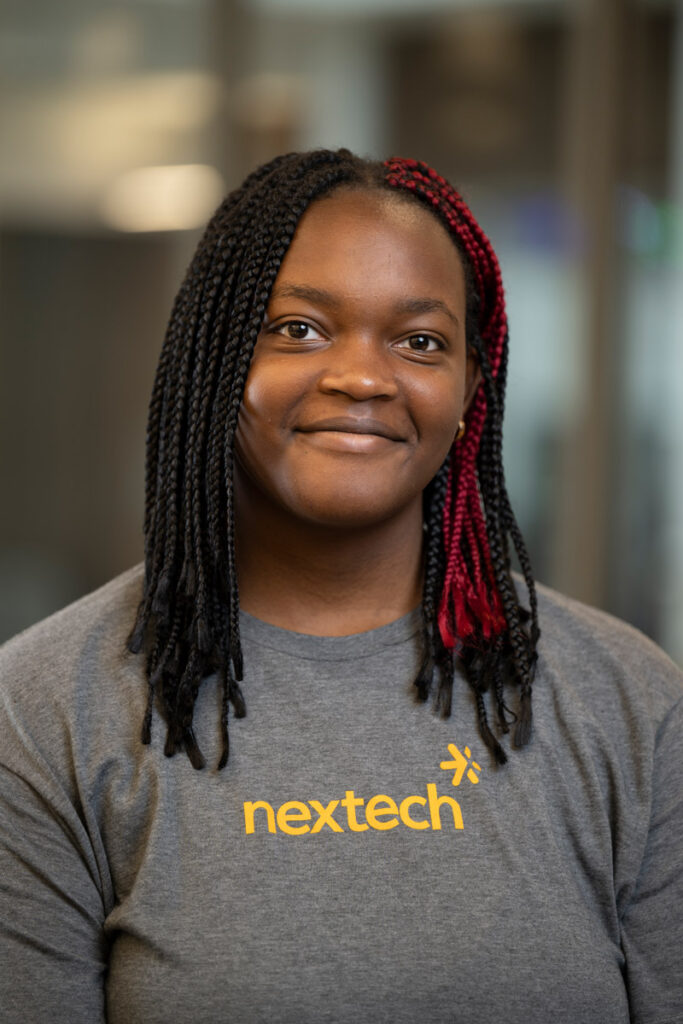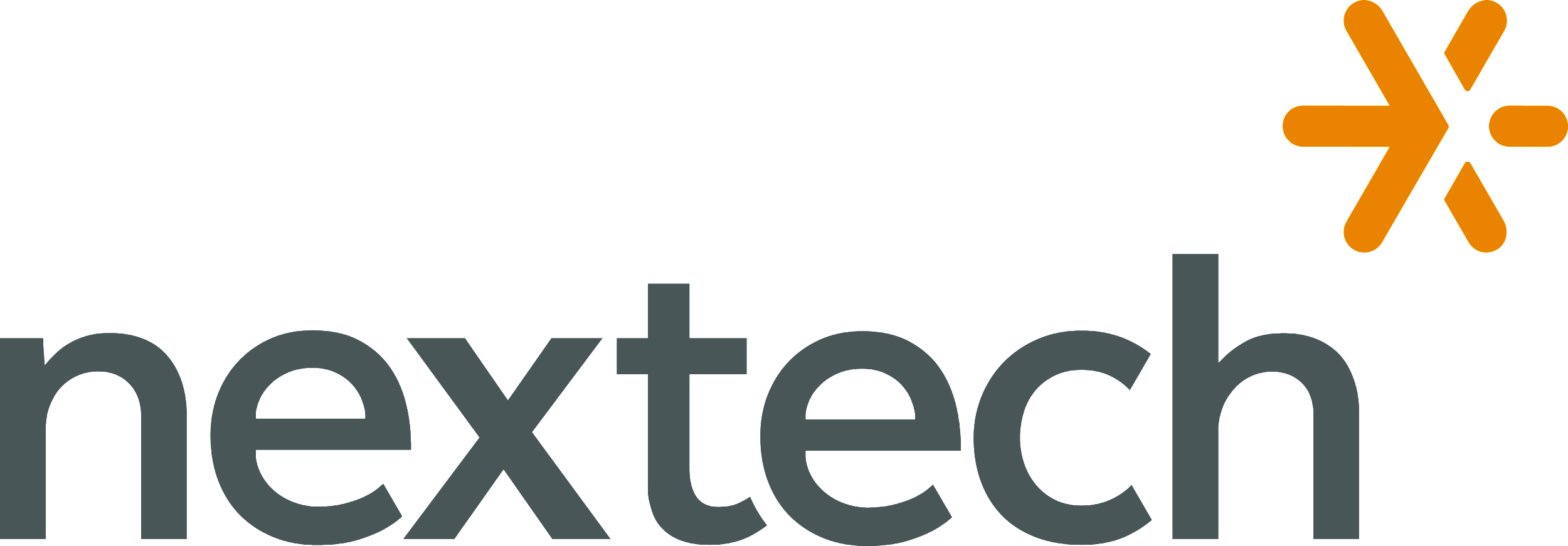Impact Stories: Oyenmwosasere
Barriers to Black Americans Entering Tech Begin in School

In February 2022, Jobs For the Future released a report on organizations working to increase the percentage of Black Americans in technology careers. JFF Vice President Michael Collins offered a warning:
“To disrupt historic patterns of occupational segregation in technology, we cannot ignore the systemic barriers to access and advancement that begin in K-12 schools and persist in communities and in the workplace.”
A report by the Kapor Center and NAACP a month later echoed this perspective:
“The gap in [racial] representation in the industry starts in the classroom. … Black students in K-12 education continue to be negatively impacted by inequities in resources, school funding, teacher quality, broadband accessibility, and course availability and quality, all of which impact their educational opportunities.”
Here in Indiana, Code.org found that of the 2,890 AP Computer Science exams students took in 2020, only 144 (less than 5%) were taken by Black/African American students.
Nextech and its partners are out to change that, as 16-year-old Oyenmwosasere Ekhosuehi learned for herself.
Though Oyenmwosasere, a Black female, attends an intentionally diverse high school that offers Introduction to Computer Science and AP CS A classes and she had an interest in coding simmering for a while, no one encouraged her to take a CS class. When we talked to her, she was surprised to hear that her school once won the College Board’s AP Computer Science Female Diversity Award.
She wasn’t at all surprised, though, at the statistics related to Black Americans in tech-related careers.
“Especially for Black women in tech, we see a lot of disparities. Plus, there’s a large gap between men and women in tech, a lot of stigmas that say the tech world is not for us,” she said. “As an African American myself, I never expected to enjoy computer science. But a lot of organizations are trying to break those stereotypes now. Nextech is one of them.”
Her school partners with Nextech, yet an online nonprofit is where Oyenmwosasere learned about opportunities such as Nextech Catapult, an immersive program with a summer internship and workshops throughout the school year.
“I’d been thinking about college and what I wanted to do, and I was seeing on social media that tech was a big thing. I’d wanted to learn how to code for a while but had never gotten to it. But I found Nextech Catapult and decided that’s what I’d do,” the teenager said. “Nextech didn’t pay attention to race or gender. They included everyone in everything and treated us all equally.”
“I’ve done many summer programs, but Catapult was the best one I’ve ever done in my life. I didn’t want it to end,” she said. “I went in with no experience and came out knowing how to build a website, and it was so much fun. I made some really good friends.”
Thanks to Catapult and Nextech, Oyenmwosasere is much more likely to earn a CS degree simply because they made no assumptions about her interest or abilities.
“Catapult was an experience where I was opened up to the tech world and learned it doesn’t match the stereotypes,” Oyenmwosasere said. “Catapult gave us a lot of opportunities for networking, taught us how to make a LinkedIn profile, figure out our career options and learn new skills for the growing job market.” She wants to become a Catapult teaching assistant in the future so she can show other female students and students of color that they can do it too.
Again from the Kapor study:
“Systemic barriers and exclusionary practices that actively marginalize Black students in CS are often misidentified—based on unsubstantiated and racist deficit theories about Black students’ lack of interest in the subject matter.”
If she does earn a CS-related college degree, this young Black woman will beat tremendous odds. Even as the number of computer science majors has rocketed upward since 2006, the percentage of CS graduates who are Black has fallen, the Kapor study said. The same is true for getting a job: Last year, Russell Reynolds Associates and Valence conducted research to determine what causes such chronically low percentages of Black professionals as leaders in tech companies as well as in tech positions elsewhere. The result: Black tech professionals “consistently experience systemic barriers” that their non-Black counterparts do not encounter.
With Nextech behind her, Oyenmwosasere is moving ahead. She’ll seek a CS-related degree by joining her brother at Indiana University or striking out on her own at the University of Pennsylvania.
“I want to study marketing and informatics with a tech minor. I really like how marketing mixes the creative and business sides—and through Catapult, I figured out I want tech to be part of whatever I study. They showed us a lot of tech careers and did a great job telling us about tech jobs right here in Indianapolis,” Oyenmwosasere said. “I’d say to other students, try Catapult.”
For a female African American teacher’s perspective, read about Taundra Miles-Cranor.

In February 2022, Jobs For the Future released a report on organizations working to increase the percentage of Black Americans in technology careers. JFF Vice President Michael Collins offered a warning:
“To disrupt historic patterns of occupational segregation in technology, we cannot ignore the systemic barriers to access and advancement that begin in K-12 schools and persist in communities and in the workplace.”
A report by the Kapor Center and NAACP a month later echoed this perspective:
“The gap in [racial] representation in the industry starts in the classroom. … Black students in K-12 education continue to be negatively impacted by inequities in resources, school funding, teacher quality, broadband accessibility, and course availability and quality, all of which impact their educational opportunities.”
Here in Indiana, Code.org found that of the 2,890 AP Computer Science exams students took in 2020, only 144 (less than 5%) were taken by Black/African American students.
Nextech and its partners are out to change that, as 16-year-old Oyenmwosasere Ekhosuehi learned for herself.
Though Oyenmwosasere, a Black female, attends an intentionally diverse high school that offers Introduction to Computer Science and AP CS A classes and she had an interest in coding simmering for a while, no one encouraged her to take a CS class. When we talked to her, she was surprised to hear that her school once won the College Board’s AP Computer Science Female Diversity Award.
She wasn’t at all surprised, though, at the statistics related to Black Americans in tech-related careers.
“Especially for Black women in tech, we see a lot of disparities. Plus, there’s a large gap between men and women in tech, a lot of stigmas that say the tech world is not for us,” she said. “As an African American myself, I never expected to enjoy computer science. But a lot of organizations are trying to break those stereotypes now. Nextech is one of them.”
Her school partners with Nextech, yet an online nonprofit is where Oyenmwosasere learned about opportunities such as Nextech Catapult, an immersive program with a summer internship and workshops throughout the school year.
“I’d been thinking about college and what I wanted to do, and I was seeing on social media that tech was a big thing. I’d wanted to learn how to code for a while but had never gotten to it. But I found Nextech Catapult and decided that’s what I’d do,” the teenager said. “Nextech didn’t pay attention to race or gender. They included everyone in everything and treated us all equally.”
“I’ve done many summer programs, but Catapult was the best one I’ve ever done in my life. I didn’t want it to end,” she said. “I went in with no experience and came out knowing how to build a website, and it was so much fun. I made some really good friends.”
Thanks to Catapult and Nextech, Oyenmwosasere is much more likely to earn a CS degree simply because they made no assumptions about her interest or abilities.
“Catapult was an experience where I was opened up to the tech world and learned it doesn’t match the stereotypes,” Oyenmwosasere said. “Catapult gave us a lot of opportunities for networking, taught us how to make a LinkedIn profile, figure out our career options and learn new skills for the growing job market.” She wants to become a Catapult teaching assistant in the future so she can show other female students and students of color that they can do it too.
Again from the Kapor study:
“Systemic barriers and exclusionary practices that actively marginalize Black students in CS are often misidentified—based on unsubstantiated and racist deficit theories about Black students’ lack of interest in the subject matter.”
If she does earn a CS-related college degree, this young Black woman will beat tremendous odds. Even as the number of computer science majors has rocketed upward since 2006, the percentage of CS graduates who are Black has fallen, the Kapor study said. The same is true for getting a job: Last year, Russell Reynolds Associates and Valence conducted research to determine what causes such chronically low percentages of Black professionals as leaders in tech companies as well as in tech positions elsewhere. The result: Black tech professionals “consistently experience systemic barriers” that their non-Black counterparts do not encounter.
With Nextech behind her, Oyenmwosasere is moving ahead. She’ll seek a CS-related degree by joining her brother at Indiana University or striking out on her own at the University of Pennsylvania.
“I want to study marketing and informatics with a tech minor. I really like how marketing mixes the creative and business sides—and through Catapult, I figured out I want tech to be part of whatever I study. They showed us a lot of tech careers and did a great job telling us about tech jobs right here in Indianapolis,” Oyenmwosasere said. “I’d say to other students, try Catapult.”
For a female African American teacher’s perspective, read about Taundra Miles-Cranor.


